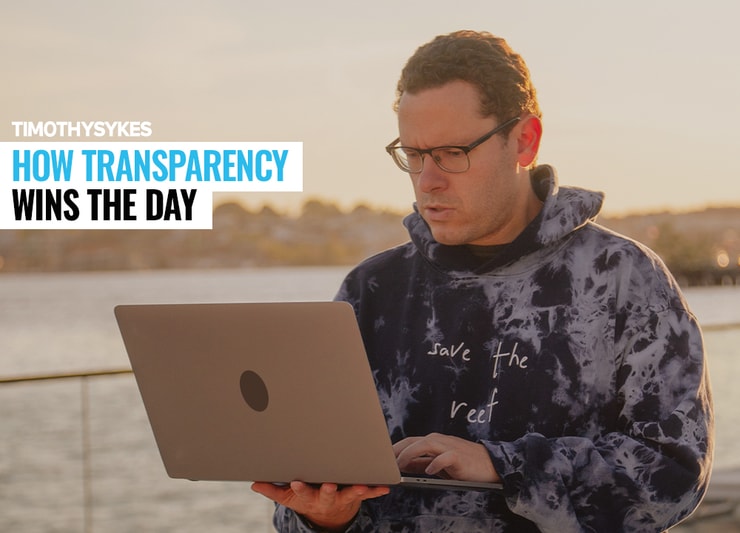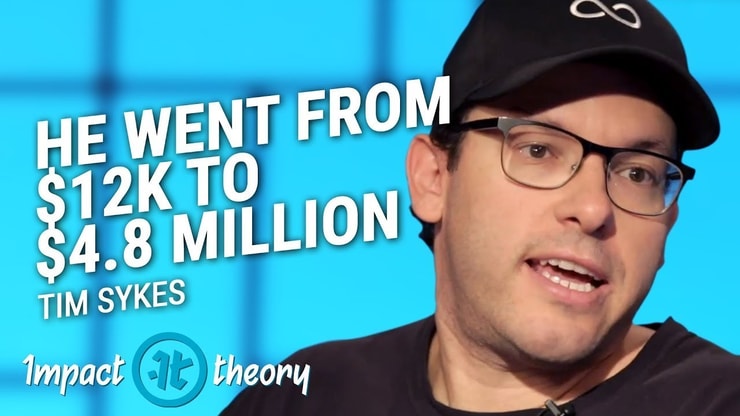You may have noticed we live in one of the most amazing times in history …
The internet is arguably the most important and powerful tool since the invention of the printing press in 1439. You have access to so much information that you almost don’t need to use the old ways — the old styles of media.
But with so much information available, many people still aren’t living up to their potential. Instead of using the internet to study, they waste time on the wrong things like video games or watching television. Instead of using social media to be a positive influence, they use it for spreading negativity.
Are you living up to your potential? Are you making the money you need to live the life you want? Are you making enough extra money to be able to make a difference in the world?
Table of Contents
Belief and Transparency Win the Day
One of the reasons people don’t achieve their dreams is because they don’t believe. They might ask what it’s like to be a millionaire. They might even say “Teach me to be a millionaire.”
But either they don’t believe it’s possible or they aren’t willing to put in the time and dedication to make it happen. They believe failure or losing is bad and they give up too soon.
What I teach isn’t a get-rich-quick program. I believe what I teach can speed things up but it still takes thousands of hours of study. It takes small losses and small failures. I’m just keeping it real. I’m being transparent.
History Teaches Powerful Lessons

One of the reasons I’m so transparent with what I teach is because it gives my students a clear picture — a real picture — of how success works. There’s good and bad that comes with money. Nobody teaches you how to ‘be’ once you get rich. You’ll have to change your perspective and find new meaning in your life.
The ancient Egyptian civilization lasted nearly 4,000 years. Do you think they did everything right? They did some things right and some things wrong. But they lasted a very long time. They learned from their mistakes and changed to continue and move forward.
More Breaking News
- Geron Targets Aggressive Growth with RYTELO Revenue Projections
- Nubank’s New U.S. Bank Expansion Amid Strategic Partnerships and Positive Market Moves
- Rivian’s Strategic Expansion with New Chief Customer Officer
- FMC Plans Debt Reduction and Strategic Growth Initiatives for 2026
When you break down how I trade — how my students trade — there are something like 20 key patterns. Each student has their own personality so they choose which patterns suit them. Then they learn them inside-out by studying the past — by studying history.
Transparency Gives You Perspective
The main reason I’m transparent with everything is because I want to pay my success forward.
I share pretty much every aspect of my life. I share trading wins but I also share losses and failures. Without my losses and failures, I’d be an incomplete trader. I’d be an incomplete teacher. And I’d be an incomplete human. Failure gives you perspective.
I want my students to be successful — and not only with making money. Yes, I teach people how to trade. But I teach more than that. That’s what the transparency is about. I want my students to be more fulfilled as people.
Wouldn’t you rather feel like a complete and fulfilled person than the alternative? I think there’s so much you can do with money and a lot of rich people don’t do it. A lot of rich people aren’t happy and they live unfulfilled lives. What would you do if you had all the money you need to live a great life?
Imagine what it would mean to get out there and see what you can do …
… to make the world a better place.
Beware the Guru Who Lacks Transparency
I teach my students how to recognize and avoid trading scams. But it starts before that. It starts now. Why? Because there are dozens of trading ‘gurus’ out there scamming people. They’re not transparent. They don’t share their losses as well as their wins. All they care about is taking people’s money.
They con you into “get rich quick” and “you don’t have to study that hard. “ That’s absurd!
I see a lot of people with bad habits developed by studying with some of these scammers. Sometimes my first job is to help traders break bad habits. I teach them rules and help them develop discipline.
Transparency. That’s what it’s all about. I will teach you, but you have to be willing to put in the time and effort.
Would you like to know more?
The Trading Challenge is my highest-rated program. Every one of my top students is part of the Trading Challenge.*
Apply today. Be aware, not everyone who applies gets accepted. The Trading Challenge is a program requiring dedication, effort, and commitment.
It’s an amazing time in history. Are you ready to live up to your potential?
Click the red button above and enter your email address to start the application process.









Leave a reply